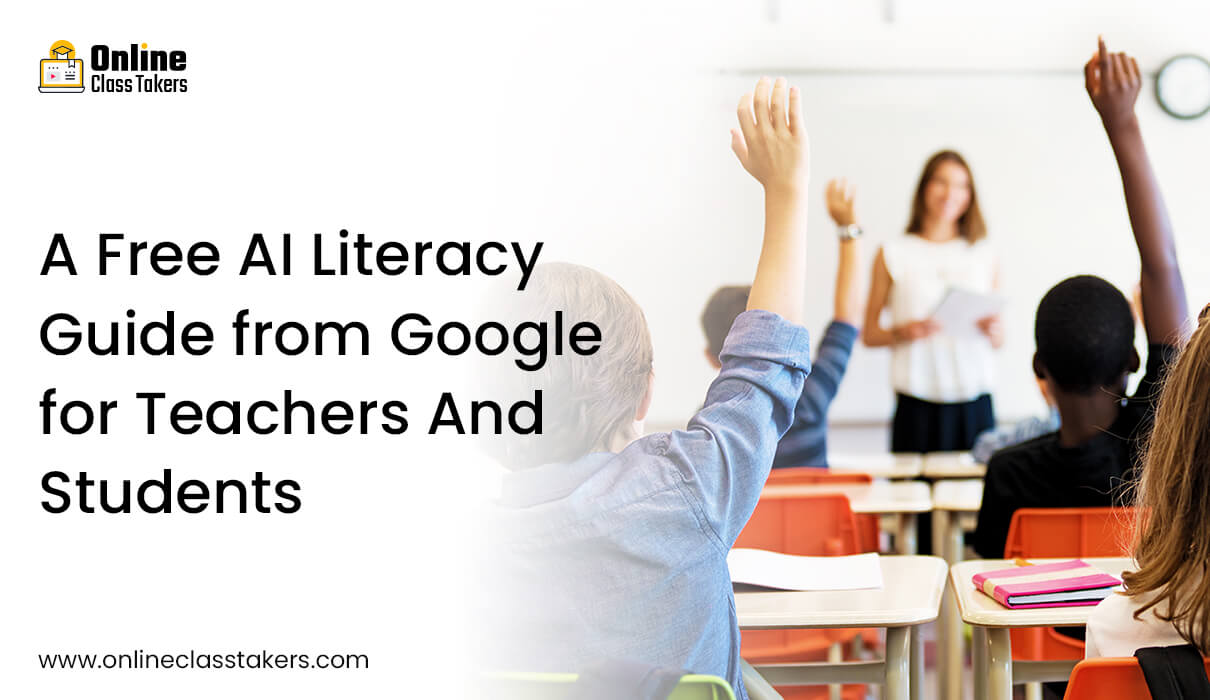Understanding The Need For AI Literacy
The constant deeper penetration of AI in society makes it indispensable that people at least have a certain level of knowledge of its principles and implications. Most often, the complexity of AI becomes a barrier to entry for educators and students. And with the misunderstandings and fears around AI, this challenge is aggravated. Consequently, there is an emerging need for freely available educational resources that use AI in a clear and inspiring way.
Introducing Google’s AI Literacy Guide
Google’s AI literacy guide emerges as a beacon of light amidst this educational landscape. Google AI Literacy Guide offers a helping hand for educators and students who are willing to effectively quench their audience with the highest degree of flexibility, interactivity, and depth concerning the presented information. It contains the content from the basics of AI and machine learning to the bias in AI algorithms and ethical aspects of the algorithms in detail.
Key Features Of The Guide
Structured Learning Modules
The guide is modularized and follows structured modules, each with a focus on specific aspects of AI literacy. This assures a stepwise learning curve where users have at their fingertips the basic tenets before complex aspects are unboxed.
Interactive Activities
The tutorial guide is interactive and comprehensive, with embedded quizzes and activities for better understanding. The hands-on exercises are designed in such a way that users will be able to put the theoretical concept into practical scenarios, and hence, the reinforcement of AI concepts will be done.
Real-World Examples
Real-world application stories and case studies on how AI is being put to use in myriad fields, right from health to finance and transportation to science and technology. Examples and stories make students apply and understand the relevance or impact of AI in their lives.
Ethical Considerations
It is an ethical guide for recognizing that there are ethical considerations in AI; thus, it has a section that discusses the exploration of ethical considerations that include bias, privacy, and accountability. A debate on these issues would enable educators to take my class online to help students develop critical thinking and raise their level of ethical awareness.
Benefits For Educators
Enhancing Curriculum Integration
The AI Literacy guide offers educators an easily adaptable and effectual solution to integrating AI education into the school curriculum. The contents cover lessons that empower educators to apply AI concepts in their diverse subjects and, in the process, improve the teaching and offer students much-needed exposure to 21st-century skills.
Curriculum Enrichment
Educators can enrich their curriculum by mapping AI concepts into the already existing learning objectives in science, mathematics, social studies, and language arts. This will, therefore, expose the students to interdisciplinary AI applications and thus be more aware of its relevance in different fields.
Ready-To-Use Resources
It contains ready-to-use lesson plans, activities, and teaching approaches—all of them tailored to help educators easily integrate AI concepts into classroom teaching. The resources can be applied by the educator to develop activities that will engage students in learning experiences that are interactive and encourage the active participation of learners in fostering better comprehension of the AI principles.
Fostering 21st-Century Skills
This will, therefore, put AI education in the curriculum to ensure our students have 21st-century skills that will be very crucial for their survival in such a global landscape.
Critical Thinking and Problem-Solving
Exploring the concepts of AI facilitates students’ development of critical thinking skills in analyzing, evaluating, and applying solutions to problems related to AI technologies. They learn to deal with complex issues from different points of view, And sometimes They hire someone to take my online class which enables them to have a more profound vision not only of the ethical implications but also of the social repercussions of AI.
Digital Literacy and Technological Fluency
AI technologies could help students build the digital literacy skills and fluency required to use technology according to moral and ethical principles. The students will develop digital literacy and learn how to use the available technology effectively to tackle real-world challenges by making use of AI-driven platforms, sourcing information, and applying it.
Flexible Adaptation To Learning Styles
This means that teachers will be able to make modifications to the content for learning style preferences of all kinds, allowing wide diversity in learning among students.
Tailored Instruction
Educators can accommodate the individual student by modifying the pace, depth, and complexity of the AI curriculum. In effect, it personalizes the learning process, thereby facilitating learning for each student according to his or her ability as a visual, kinesthetic, or tactile learner.
Multimodal Learning Opportunities
The guide offers many ways of learning with multimedia materials, which can be helpful in the understanding of the students. Educators can draw on these kinds of resources to dynamically design very diverse learning environments suitable for their most variable students.
Conclusion: Shaping the Future of Education with AI Literacy
In sum, Google’s AI literacy guide is one of the first attempts to make sure that AI education is democratized. It will ensure that Google will remain a leader not only in advancing AI but also in making sure that AI benefits everyone and that society is built as an inclusive one. As we embrace the transformative potential of AI, investing in AI education becomes not only a necessity but also a catalyst for positive change. By working with industry, academia, and policymakers, AI literacy will remain at the forefront of the debate about education and inspire a great many people to succeed in the digital age


